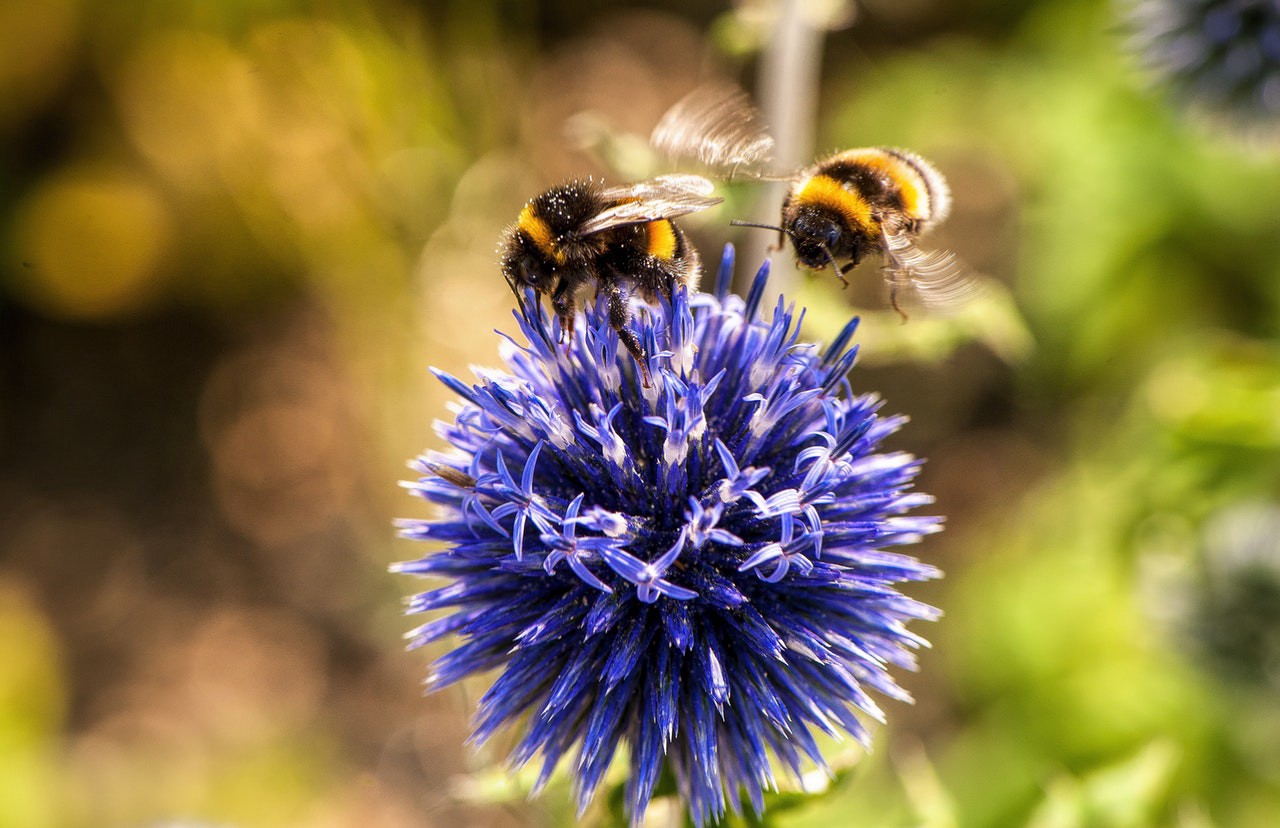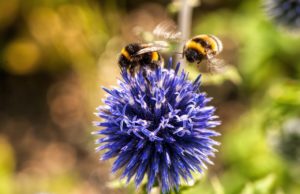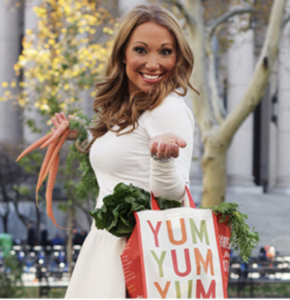Eight Small Steps You Can Take to Help the Bees Help Us
As a kid, I worried about getting stung by a bee. I knew if a bee stung, it would hurt and that, for some people, the venom from the stinger could be very dangerous. A swarm of bees could disrupt a lazy afternoon picnic at the lake.
I didn’t pay much attention to the fact bees are important insects and have a significant role in our ecosystem, nor did I fully understand the meaning behind that old saying, “busy as a bee.”
But as an environmentalist and someone who lives with a green heart, I do now, thanks to my friend Karen who is a beekeeper in Connecticut.
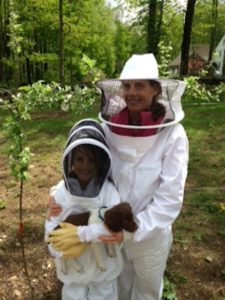
Bees have an important job.
Bees are pollinators that help plants and trees to make fruit or seed. They travel great distances to move pollen from one part of a flower to another. One of every three bites of food we eat is the result of the hard work of a honey bee. Certain food crops, including blueberries and cherries, are ninety per cent dependent on the honey bees for pollination. Close to ninety per cent of all wild plants depend on native bees for pollination, as do thirty per cent of the world’s crops. They have a very important place in our ecosystem. Without the hard work of these industrious insects, our food system is in jeopardy.
Bees help keep our economy healthy.
It sounds crazy that something as tiny as a bee could have so much impact, but more than $15 billion in US crops, including apples, cantaloupes, cucumbers, lemons, limes, avocados, carrots and almonds, depend on bees to grow. On top of that, honey bees produce approximately $150 million of honey in the US each year. The math is simple, fewer bees, a slower economy.
Bees are declining across the planet.
It’s not just the honeybees who are in danger of extinction. A recent report entitled Pollinators in Peril found that nearly 1 of every 4 native species of bees in North America and Hawaii are at risk. The reasons cited come as no surprise. Development, as well as the abandonment of farms, lead to the destruction of their habitat. Global warming causes flowers to bloom earlier or later than usual, disrupting the bees’ natural cycles of pollination. The often unnecessary use of toxic pesticides such as neonicotinoids is decimating the bee population. This particular pesticide is considered so damaging that the European Union has placed a moratorium on its use and is currently considering a total ban on the use of it outdoors.
What you can do to help #SaveTheBees.
Living with a green heart, for me, means being aware and taking a moment to find out what small steps I can take to help correct the situation. Here are some ideas when it comes to the bees:
- Buy USDA 100% Certified Organic produce. When produce carries that seal it means no pesticides were used which means you might have saved the life of even one bee.
- Buy only local and raw honey that’s produced sustainably and with no pesticides.
- Don’t use pesticides, fungicides, or herbicides on plants in your garden.
- Ensure that any plants you buy have not been pre-treated with these chemicals.
- Consider not weeding. It may sound crazy, but bees like and are nourished by weed-like dandelions.
- If you’re really feeling adventurous become a beekeeper and create your own hive in your garden. It’s a chance to give the bees a home plus if you’re really feeling industrious, you can even make your own honey!
- Support local bee sanctuaries like the New York Bee Sanctuary and groups like the Bee The Change Project whose mission is to create safe havens for all pollinators, including the bees, butterflies and moths.
- Support the work of organizations like the Environmental Working Group who are petitioning the EPA to restrict the use of these harmful and toxic neonicotinoids that are destroying the bee populations.
None of these suggestions takes great effort, but we make a collective difference if we pick even one together. To paraphrase Mahatma Gandhi, bee the change you want to see.
Beyond its exceptional taste, local honey also boasts impressive health benefits. Many people turn to honey as a natural alternative to processed sugars, and local honey takes this advantage to a whole new level. Consuming local honey is believed to help alleviate seasonal allergies by exposing the body to small amounts of local pollen, thus building immunity over time. This phenomenon, known as immunotherapy, can provide relief from common allergens and contribute to overall well-being.
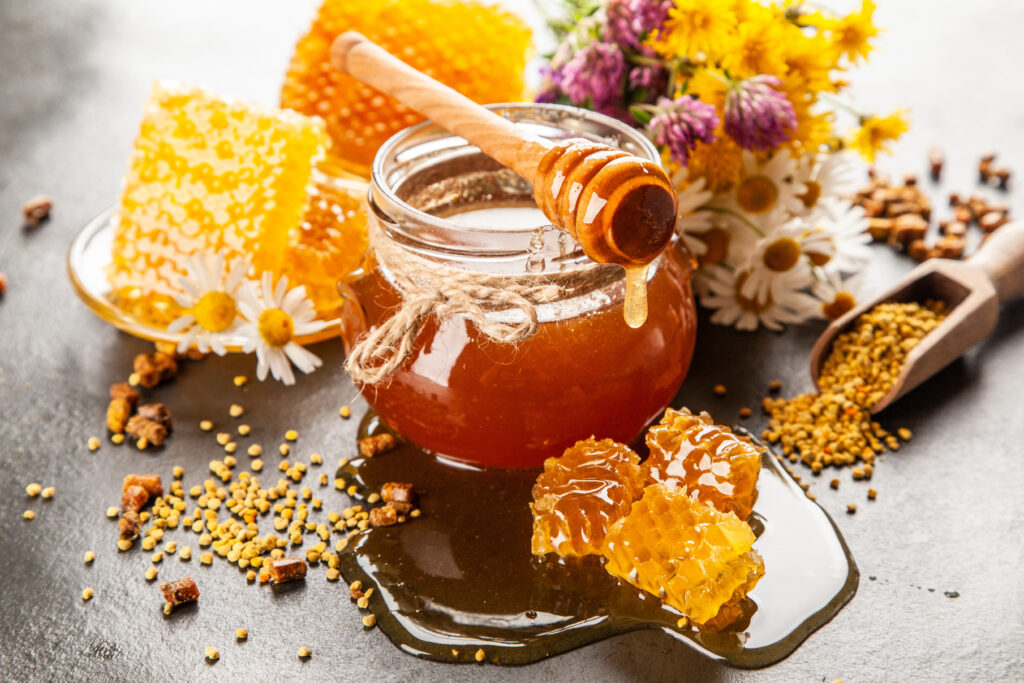
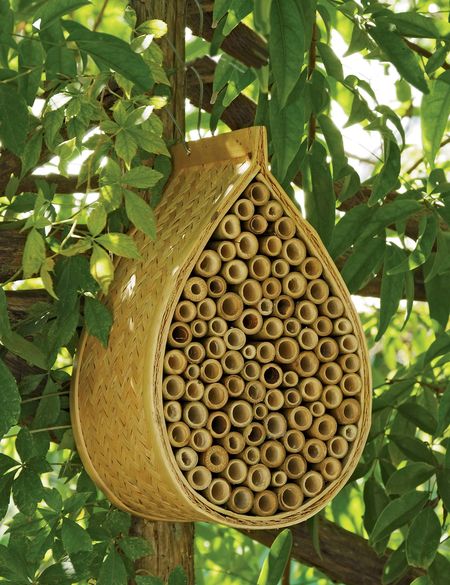
SunVara Mason Bee House for Pollinating Bees Wild Pollinator Mason Bee Brick Tubes Habitat Garden Supplies Bee Boxes Hanging Bee Box Hotel
- SAVE THE BEES: Do something great for the environment with this wild bee habitat! Adding this bee house to your yard gives wild pollinators a comfortable place to nest and also helps your flowers, garden, and fruit trees thrive.
If you enjoyed this you check out our blog or our podcast for more stories, secrets and sins from living with a green heart.


